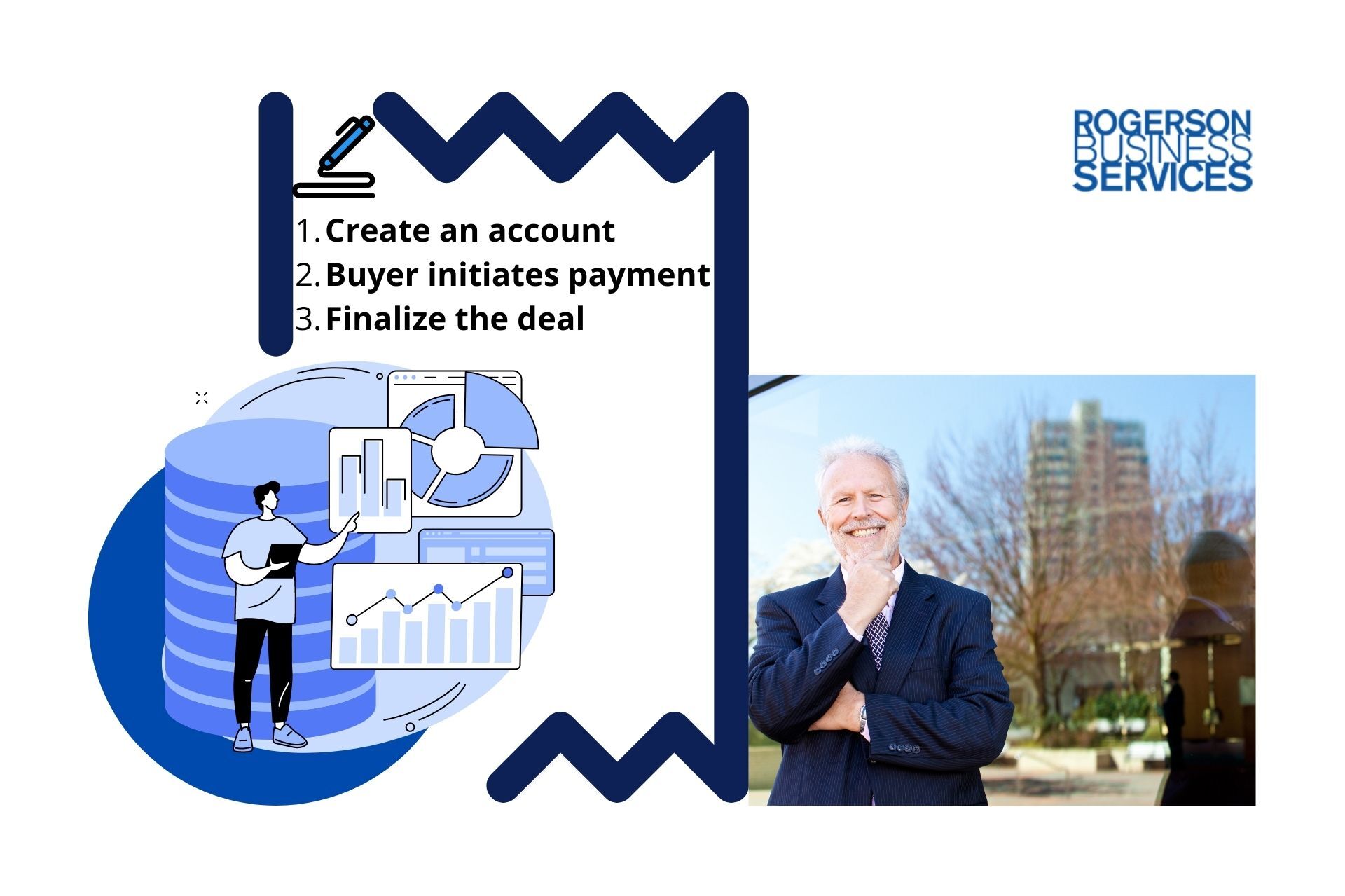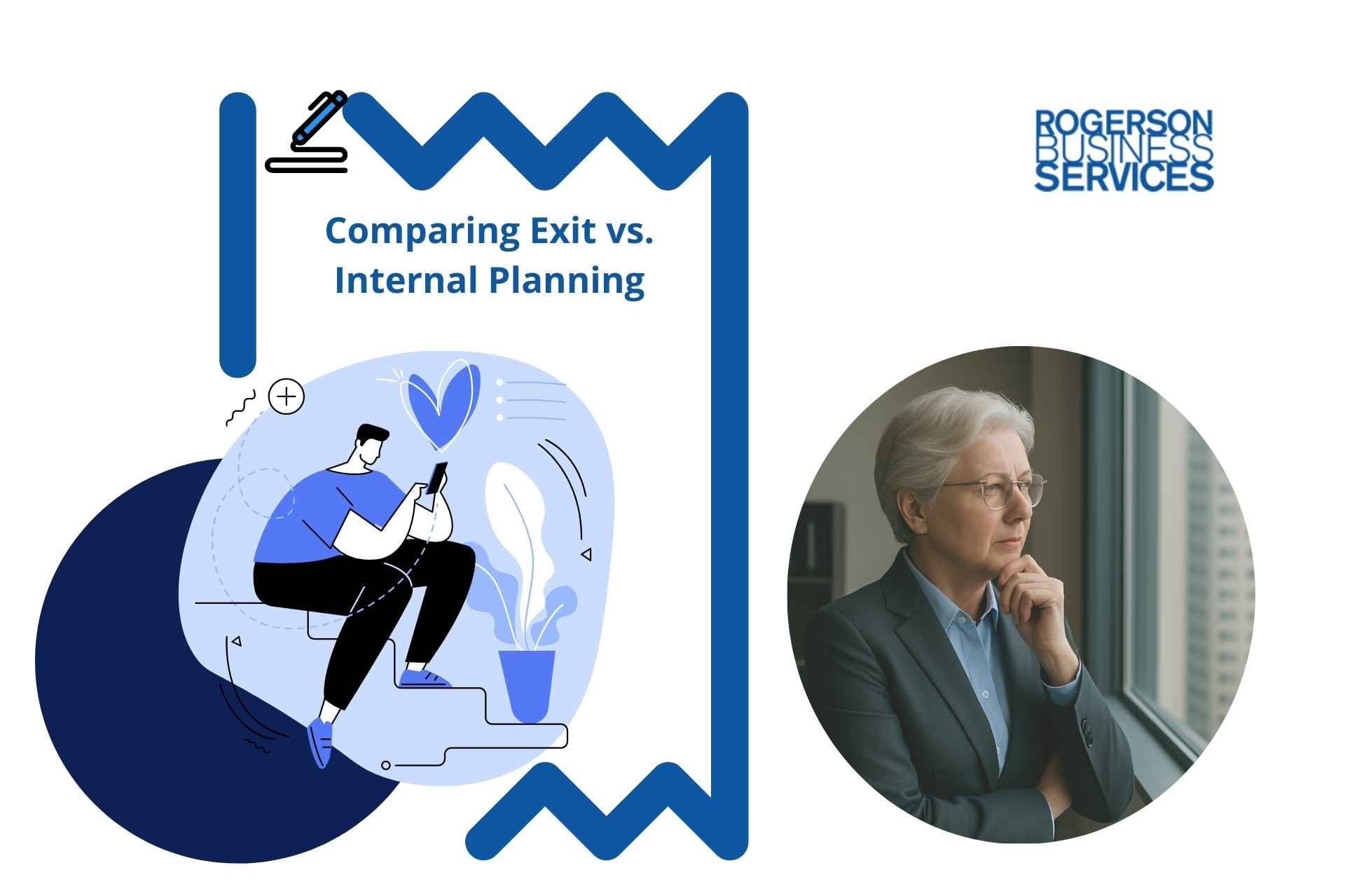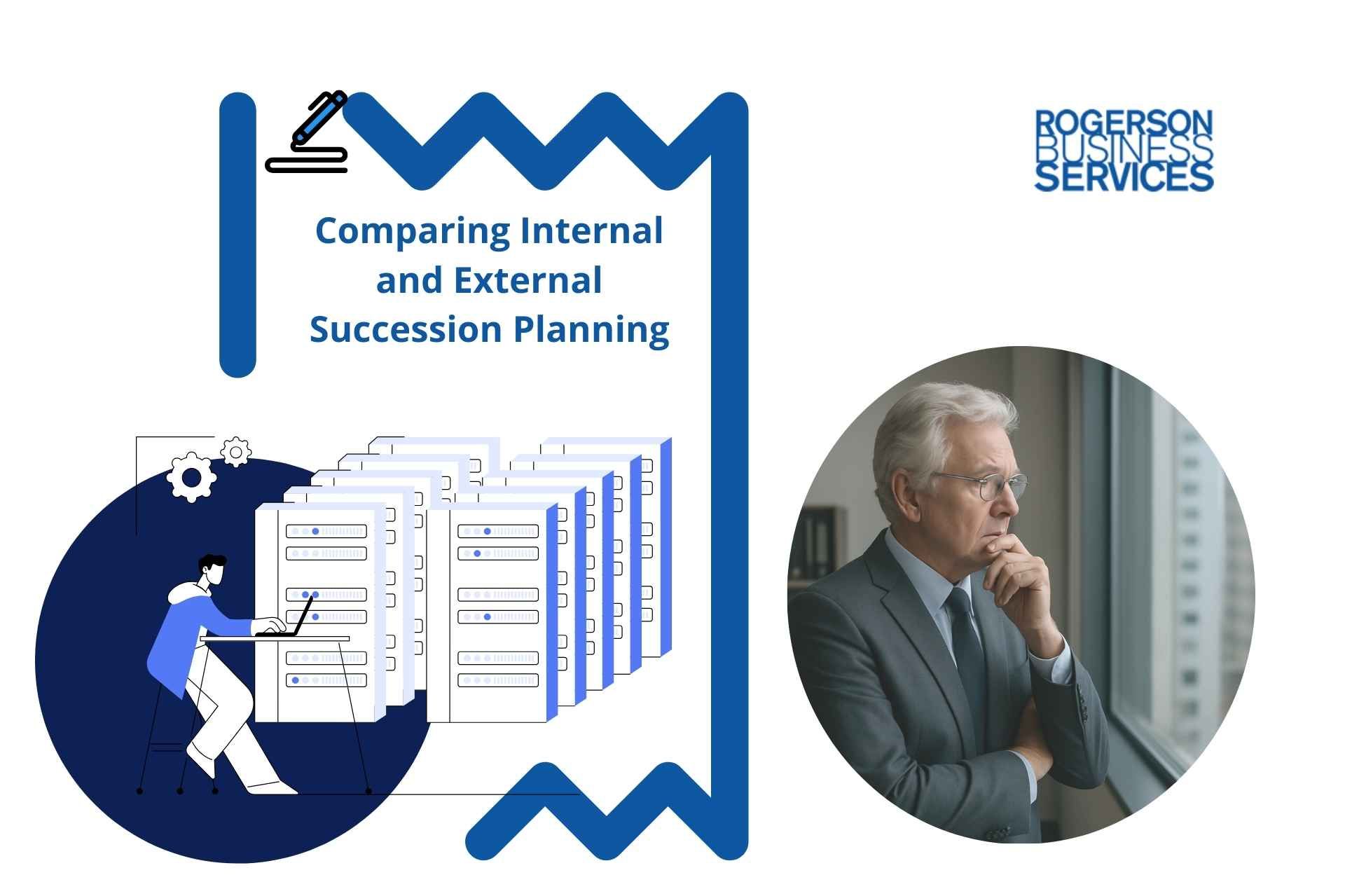Escrow Process in California When Selling Your Business
Escrow Process in California
- Create an account
- Buyer initiates payment
- Finalize the deal

Understanding the escrow process in California is essential for those who wish to sell their lower middle market business. Whether you are currently in the process of selling your business or you are planning to in the future, understanding what an escrow is and how it can help you will save you time and money.
An escrow is a service provided by a third party that will help simplify the sale of your business by assisting you with service transitions, ownership transfer, and monetary transactions with your buyer.
The Escrow Process in California
Buying and selling a business in California isn't a walk in the park. Every detail needs to be right to ensure a seamless selling process. Keep in mind that a business can be classified as an asset- and as such, you want to be careful when handling it. A business involves leases, property, personnel, and more. While it may be tempting to rush through the process to get the sale over with, it's better to take it slow and use an escrow to assist you.
Escrow is a third-party service whose main aim is to streamline your selling process. The escrow service operates between the buyer and seller, controlling the ownership transfer and handling the transactions.
Selling a business can take a lot of time. Experts have to analyze and value the business before you can transfer ownership. As such, the money and documents that need to change hands might be sitting around for a long time- potentially leading to loss. This is where an escrow comes in handy.
The escrow process collects the payment (in full) from your buyer, assuring you complete payment. Other things include proofs of ownership, keys, codes, passwords, etc. After every process is finalized, the escrow service hands everything over to the rightful owner as promised.
Why should you use escrow for business sales? For one, escrow provides the much-needed third-party supervision to oversee the whole business selling process.
Without such a party, one of the two remaining parties (the buyer and seller) might claim that they didn't receive their end of the deal as promised. They might even claim that they didn't receive every asset or full payment. Escrow services for business transactions eliminate such complaints by ensuring that both parties adhere to everything agreed on.
Does that qualify escrow as a record keeper? Yes, it does. Escrow can present their records and clear any doubts if any arguments arise.
How Long Does Escrow Take in California?
Ideally, it does not take a long time. Most people expect a 30-day escrow process. However, the timeline might vary due to various factors. This includes the agreement between the two parties, the escrow service providers, and many more. However, escrow business transfer transactions that last longer than 30 days might have issues.
Some of the biggest time hold-ups during the process occur at the early stages of the business selling process. However, you first have to assess and find the value of your business to get a minimum price acceptable. Additionally, you need to avail all the documents, books, and such for the prospective buyers. This includes tax returns, inventory lists, balance sheets, profit and loss statements, and many more.
You can call on a certified M&A advisor to help you with the valuation. Getting an ideal advisor comes in handy by taking off a lot from your shoulder. They will:
- Gather all the necessary documents needed for the valuation processes
- Identify and interview prospective buyers and their bids
- Informing the potential buyers of the proceedings
- Closing the deal
After you have finalized everything from your side, it is now time to negotiate a price with the buyer. Once you agree on a specific amount, the best thing to do is to open an escrow account. After this, all you have to do is wait.
The Escrow Process
Create and verify an escrow account
This step is quick and straightforward, especially for small amount transactions. The form to fill out is available on the official escrow website. However, the escrow process in California requires account verifications for any transactions exceeding $3,000.
All you need to do is upload all the necessary account verification documents and wait for a review. This takes 1-2 days before proceeding to the next step.
Buyer initiates payment
Once your account has been approved, your buyer can now deposit the agreed sum on your account. The buyer can do this through various methods such as wire, PayPal, or credit cards. Card and PayPal payments are processed within a day, but wire payments might take longer.
Finalize the deal
The 30 days period involves quite a lot of things before the deal is closed. The escrow holder determines whether all sale conditions have been met during this period. This includes new insurance for new owners, sales disclosure, and reports. The buyer must ascertain that everything promised is provided and in the stated condition. After everything is done, the final documents can now be signed to close the deal.
The deal is only closed after both parties confirm that everything agreed on has been met. The neutral third party (escrow) oversees this. Now you can access the funds from the escrow account.
In addition to holding the money for you, escrow also offers additional services to both parties. For example, the final closing papers are signed at an escrow office where attorneys and notary publics are present. This makes it easier and faster for them; final payments can quickly be made there physically.
The agent can also calculate all the final payments and prepare the necessary paperwork. Additionally, they can write the checks and deliver them to the correct holders before closing all the documents and meeting attorney obligations.
Even though all this is the typical process followed during your escrow for a business sale, some variations might exist from one transaction to another. One of the main reasons is that different escrow service providers and agents have different ways of doing things, causing slight differences. However, ensure that you fully understand every transaction detail from start to finish.
Who Pays for Escrow Fees in California?
One thing that makes the escrow process in California a great option is that the third party represents neither the buyer nor the seller. They just legally oversee the transaction. However, the service provider doesn't decide who to pay for the service fee. This will also be included in the business purchase agreement in California.
During the negotiations, both the buyer and the seller usually negotiate who will pay the escrow fees and other additional costs related to the transaction. They might agree that one of them covers the whole amount or that they split all the costs equally at the end of the process.
California is a different state. However, most of them don't have the one to pay the escrow fees cast in stone. Even though, some will specify who pays what. Counties where the buyer pays the escrow fees, include Alameda, Napa, Mendocino, San Mateo, and Sonoma. Those that require the seller to pay for the fees include San Benito, Sacramento, Santa Clara, and Yolo.
However, there are times when the deal collapses before the final payments are made. The transaction might be canceled, but the escrow agent still provided the services, which means they have to be paid. If the transaction collapses due to the acquisition of funds, then the buyer is the one to pay for escrow fees and any additional costs incurred during the transaction.
The final fees are dictated by several factors, most of which are independent of each other. This includes the selling price, the type of business being sold, the nature of the transactions, and the nature of services provided. Below are some expenses that contribute to the final fee.
- The escrow fee. Some services and agents have a base escrow fee paid. This is then added to the fee paid per a thousand dollars of the selling price.
- Document preparation fees
- Publication and processing fees
- Lien search and processing fee
- Sales tax. This is payable to the State Board of Equalization. The rate varies from city to city.
- Franchise transfer fees. This is paid when selling a business with a Franchise.
- Security deposit and rent to the landlord.
Conclusion
The process of selling your business through escrow in California doesn't have to be tedious and complicated. When you get your cards right, it might even take a shorter than expected period. It would be best to do this straight from the beginning to the end of the transaction process.
If you need an escrow company for business transactions, a qualified individual at M&A Advisory firm can assist you in the valuation of your business process. This will ensure that you get the maximum possible value for your lower middle market business.
Selling a business in California is hard. Let our experts help you with your escrow sale today.
If you have decided to value and then sell your lower middle market business now or within the next six to twelve months in California, click here to get started with this quick and simple form, or call Andrew Rogerson, Certified M&A Advisor, so we can understand your pain points better and prioritize your inquiry with Rogerson Business Services, RBS Advisors.
This is part of business owner tips to answer how Rogerson Business Services attract qualified buyers to sell your business series ->
Hey there! Can we send you a gift?
We just wanted to say hi and thanks for stopping by our little corner of the web. :) we'd love to offer you a cup of coffee/tea, but, alas, this is the Internet.
However, we think you'll love our email newsletter about building value and properly position your company before transition/exit your business ownership.
As a special welcome gift for subscribing, you'll also get our helping and educational guides, tips, tutorials, etc.. for free.
It's filled with the best practices for retiring serial business owners like Dan Gilbert, Larry Ellison, Warren Buffett, and many more.
Just sign up for our emails below.


